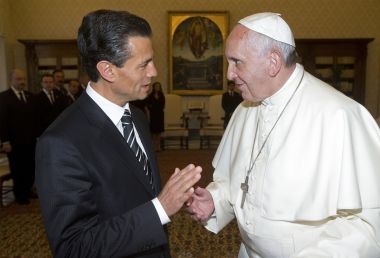More than 120,000 Mexicans ask Supreme Court to affirm right to life

More than 120,000 Mexicans have called on the Mexican Supreme Court to affirm that "abortion is not a right."
The petition, which was launched by the pro-life organisation CitizenGo, is calling on the Supreme Court to uphold the abortion reform law of the Mexican state of Tlaxcala in the face of a lawsuit filed by Supreme Court Associate Justice José Fernando Franco González Salas that challenges the law's constitutionality.
While the state considers abortion in rape cases legal, Tlaxcala criminalises other forms of abortion. Women who are not victims of rape but still underwent abortion can face up to 15 days in jail, according to MS Magazine.
According to the Catholic News Agency, the petition is addressed to González Salas, Mexican Supreme Court President Luis Maria Aguilar Morales and the President of Mexico, Enrique Peña Nieto, and reminds them that the outcome of the lawsuit will be binding on all judges in the country.
"(T)he immediate effect (of the ruling) would be to invalidate Tlaxcala's abortion reform law, and the secondary effect would be that the court's ruling would be obligatory for all the judges in the country," the petition said.
As a result, people all around the country will be able to legally abort pregnancies by simply seeking "constitutional judicial relief from the penal code."
If the Supreme Court invalidates Tlaxcala's abortion reform law, the petition alleged, judges would be compelled to provide the necessary judicial relief to petitioners.
The petitioners further reminded the Supreme Court that Mexico is a signatory of the International Covenant on Political and Civil Rights (ICCPR), which recognises the "the right to life from conception," and the UN Convention of the Rights of the Child, which states that "every minor holds the right to have his life protected, including before birth."
"Declaring the law unconstitutional would entail a grave violation of the first of all rights, the right to life and would be contrary to international treaties," CitizenGo warned the recipients.











